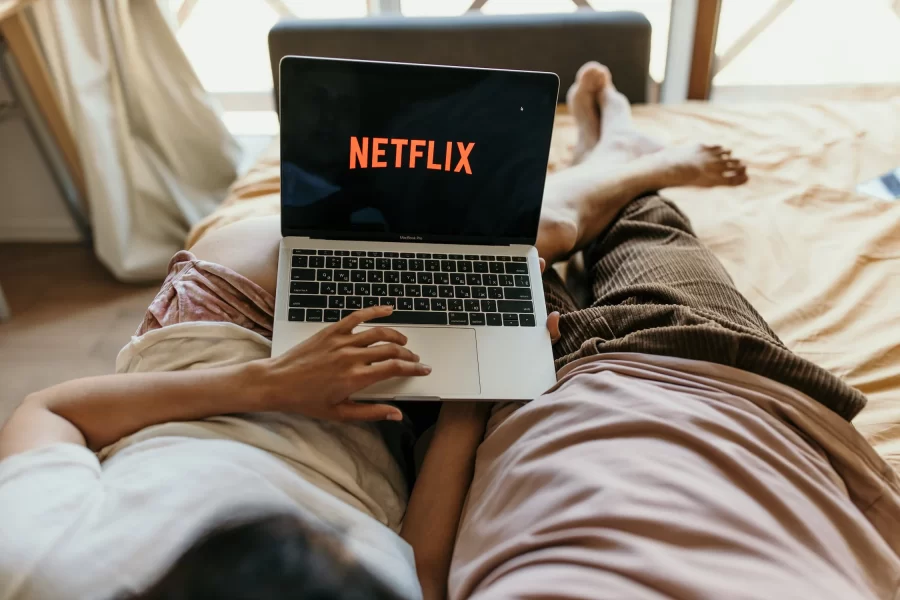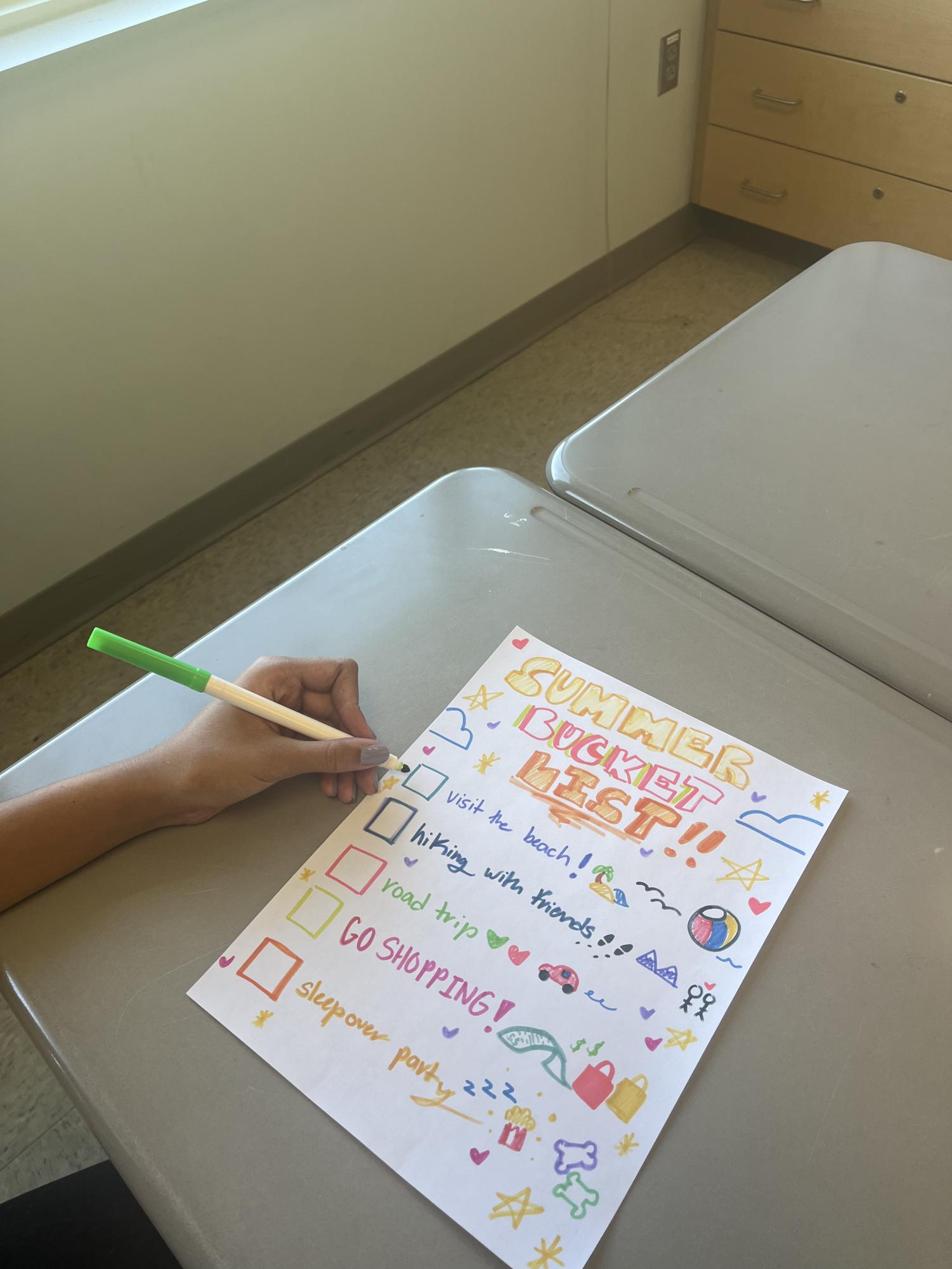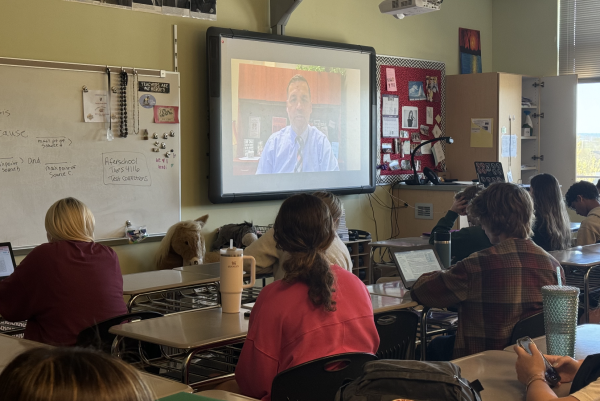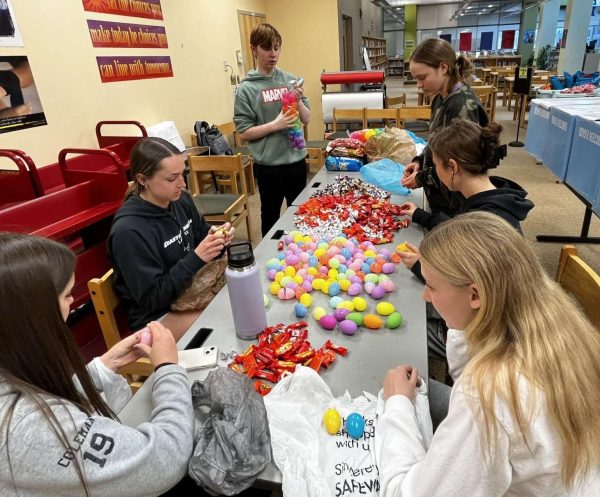Netflix’s new password-sharing policy could take TV from millions
Netflix’s new password sharing policy is upsetting many and could lead to the company losing subscriptions.
April 24, 2023
Six years ago Netflix tweeted, “Love is sharing a password.”
Apparently, the streaming service has since changed their mind on what love truly is.
In February, Netflix released a new password sharing policy with enforcements in Canada, Spain, New Zealand and Portugal. Under these new rules, Netflix has restricted multiple households from sharing a single account. But how is this being enforced?
Now, every Netflix account is required to set up a primary location with a home wifi. If a device logged into an account does not sign into the home wifi at least once every 31 days, the user will be booted from the account.
Currently, this policy has yet to be implemented in the U.S., but Netflix has expressed intent in doing so. While they have not released an exact date for when the public should expect this change to occur, it will take place some time in 2023.
This new policy will raise a number of issues for many, and according to Netflix, “Today, over 100 million households are sharing accounts.”
The millions of users who will be affected by this include college kids.
Jamie Hendi, linganore history teacher and parent of two college students, shared her thoughts.
“I get why Netflix is doing it. I mean, they … are losing money because people are taking advantage of them,” said Hendi.
Hendi elaborated that she thinks the policy is fair with some parameters, but that parents should still be able to support their kids while they’re in college.
Linganore senior and prospective college student Sydney Spradlin thinks similarly.
“I’m really annoyed because, like, Netflix is what I watch the most stuff on, so not being able to watch that in college or not being able to pay for it for myself as a broke college student just, like, not slay,” said Spradlin.
There are numerous other groups this new policy will be effecting as well, such as those who must make long work trips and kids from split households who spend long increments of time at one parent’s home.
Netflix claims that while traveling, “Members can still easily watch Netflix on their personal devices or log into a new TV, like at a hotel or holiday rental,” but they have yet to provide specification of what the traveler is meant to do if their trip exceeds the 31-day login period.
“I think [the policy] is gonna have a lot of unintended consequences that will ultimately hurt their business … I do think people are gonna be like ‘forget it’ and cancel all together,” Hendi said.
Netflix explained that the reason they are implementing this policy is because the number of shared accounts is, “impacting [their] ability to invest in great new TV and films.”
“Well [Netflix] canceled all the great shows I watch, so like, what are they doing? Like, I don’t think that [the shared accounts have] anything to do with [their reasoning behind the new policy] because they’re renewing crappy shows and canceling all the other ones,” said Spradlin.
Both Spradlin and Hendi agreed that there were better alternatives or alterations to this policy.
“I think if Netflix allowed the definition of a household to include those college kids, then you could sort of do a process where you could identify who has authorization to your account rather than just kicking out people who are in different areas,” Hendi said.
It is still not known exactly when this new policy will come to the U.S. but it may be soon. Will the lash back Netflix has received cause them to revoke the policy altogether? It is hard to know, but the potential of many canceling their subscriptions over this proposed change is very real.
People have been questioning Netflix’s curious business decisions for years, such as all of the immensely popular shows they’ve canceled. Perhaps this is just the final straw in their own downfall.














